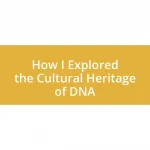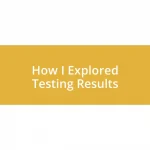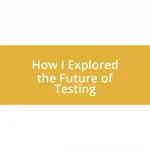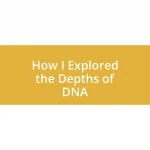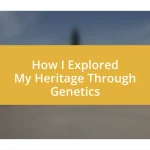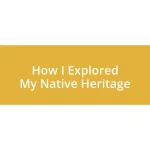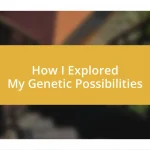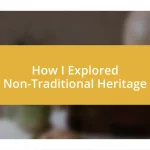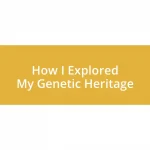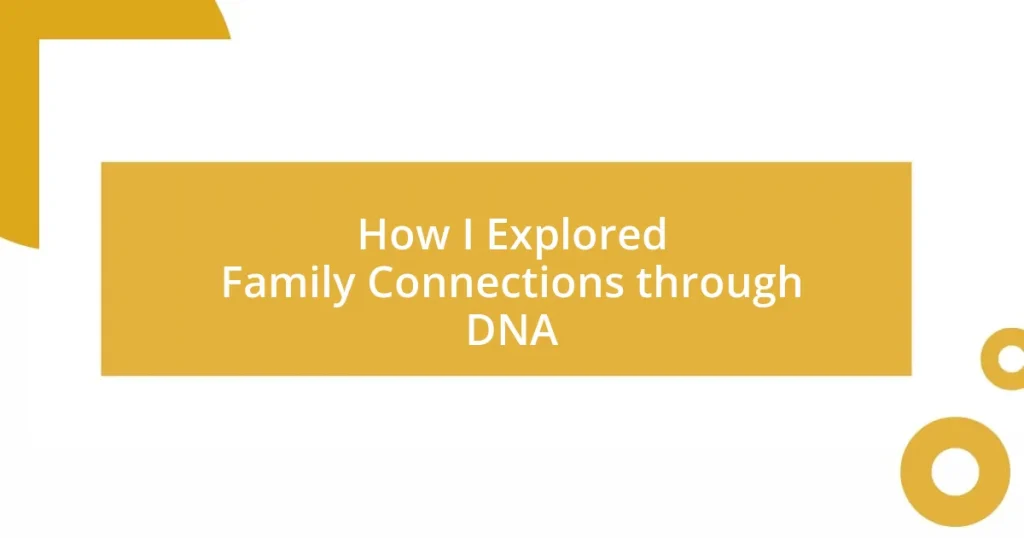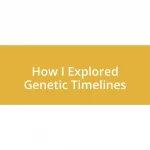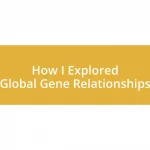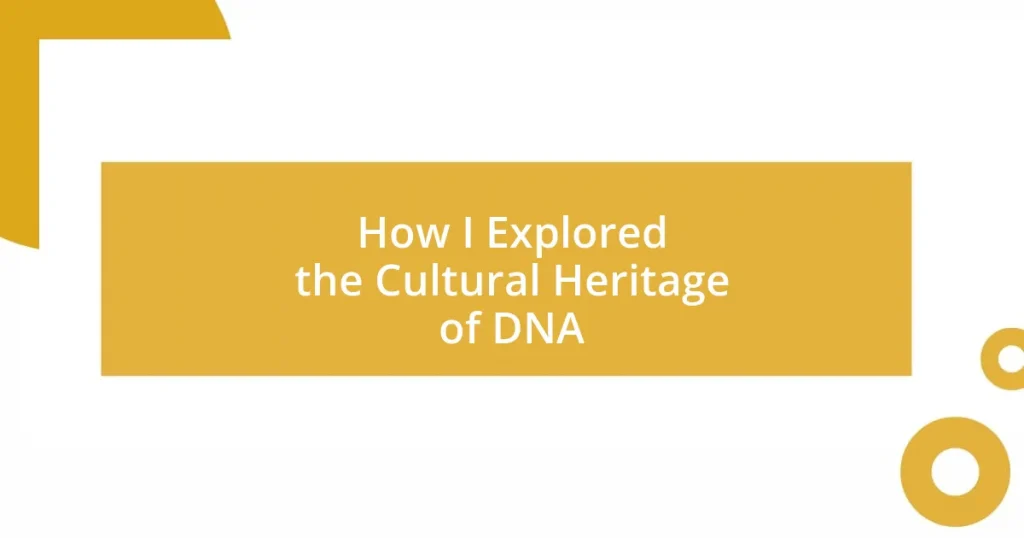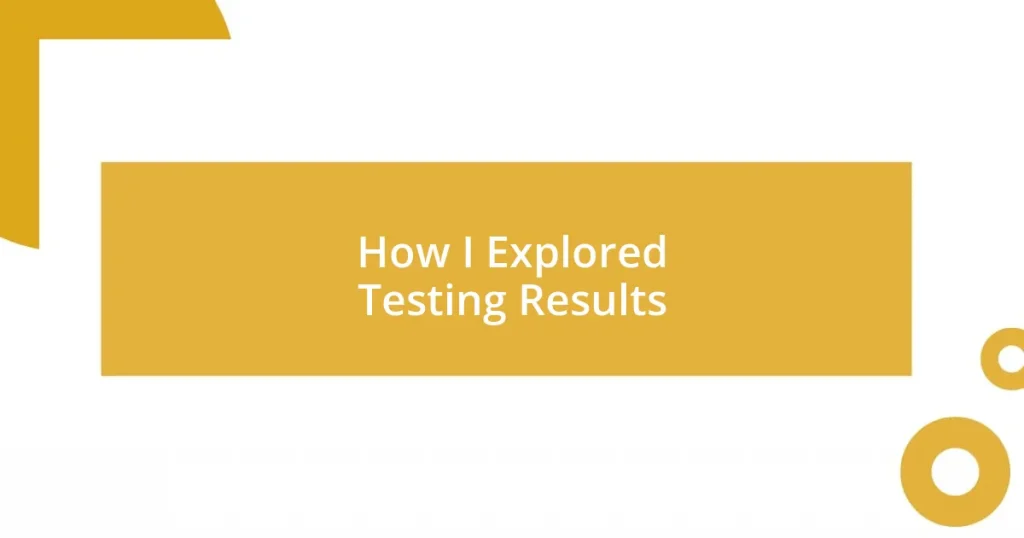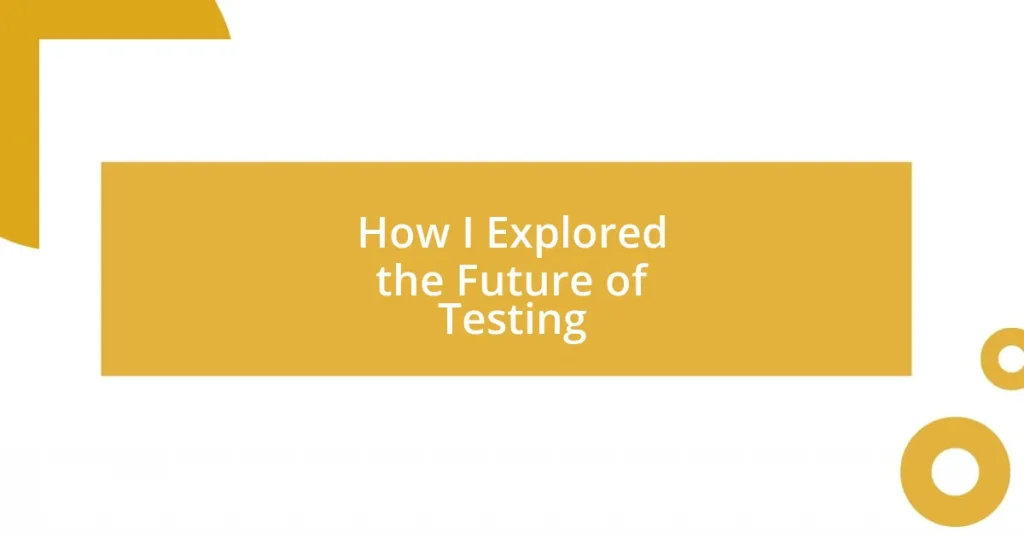Key takeaways:
- DNA testing reveals unexpected family connections and cultural insights, enhancing one’s sense of identity and belonging.
- Choosing the right DNA test involves considering test type, database size, privacy policies, user experience, and cost, which can shape the exploration journey.
- Connecting with DNA relatives fosters emotional exchanges that deepen understanding of heritage and introduce family traditions, creating a sense of community.
- Sharing DNA findings with family initiates meaningful conversations and strengthens familial bonds through shared narratives and discoveries.
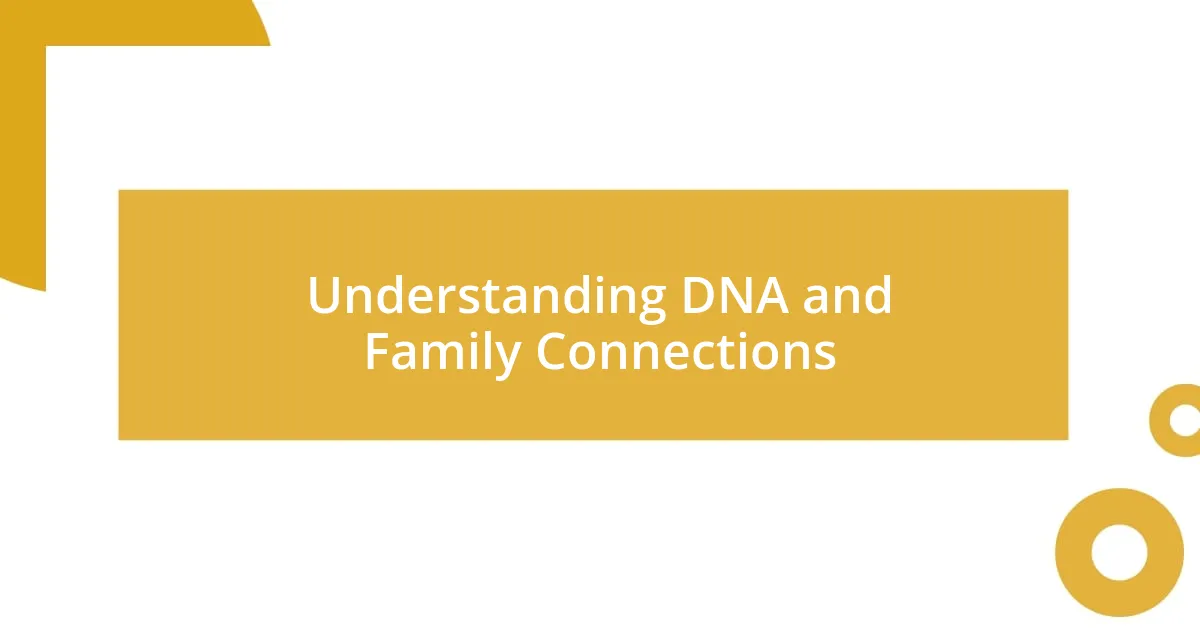
Understanding DNA and Family Connections
To truly understand DNA and family connections, it’s fascinating to realize how this molecular blueprint reveals unseen relationships. I remember feeling a mix of excitement and disbelief when I learned that certain traits I thought were uniquely mine could be traced back to distant relatives. Isn’t it amazing that something so tiny can link us to generations past?
When I first looked at my DNA results, I was struck by how it connected me to relatives I never knew existed. It felt like piecing together a family puzzle where each segment told a story. I often wonder how many others out there are sitting on similar treasures, just waiting to connect their dots.
Exploring my DNA also prompted me to reflect on the emotional bonds that go beyond bloodlines. I realized that the shared experiences we have with loved ones—not just our genetic links—create connections that shape who we are. Have you ever thought about how much of your identity stems from those you hold dear, genetically or not? It’s a beautiful reminder that family transcends the mere strands of DNA.
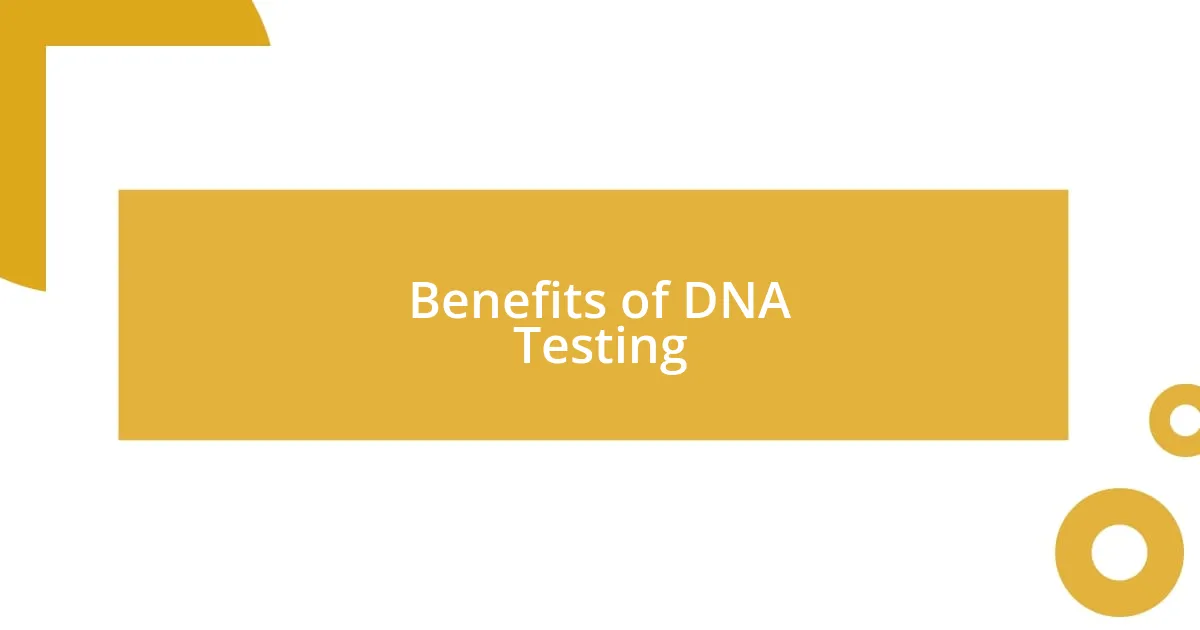
Benefits of DNA Testing
DNA testing opens up a world of possibilities, from uncovering family secrets to expanding our understanding of heritage. When I received my results, I discovered connections to cultures and regions I had never imagined were part of my story. This realization filled me with a deep sense of belonging—it’s like finding pieces of my identity scattered across time and space.
One remarkable benefit of DNA testing is the potential to connect with long-lost relatives. I still remember receiving a message from someone who turned out to be a cousin I had never met. It sparked a beautiful exchange of stories, filling in gaps of our shared family history. This experience reminded me that our family trees extend beyond just immediate connections; they weave an intricate web that can enrich our lives.
Beyond personal connections, DNA testing can empower individuals to make informed health decisions. I learned that certain genetic markers could indicate predispositions to specific health conditions in my family. Armed with this knowledge, I felt more in control of my health journey. Isn’t it reassuring to have data that can help you navigate potential health challenges more effectively?
| Benefit | Description |
|---|---|
| Finding Relatives | Connect with unknown family members and learn about their stories. |
| Cultural Insight | Discover diverse cultural roots that expand your identity. |
| Health Awareness | Identify genetic predispositions to particular health conditions. |
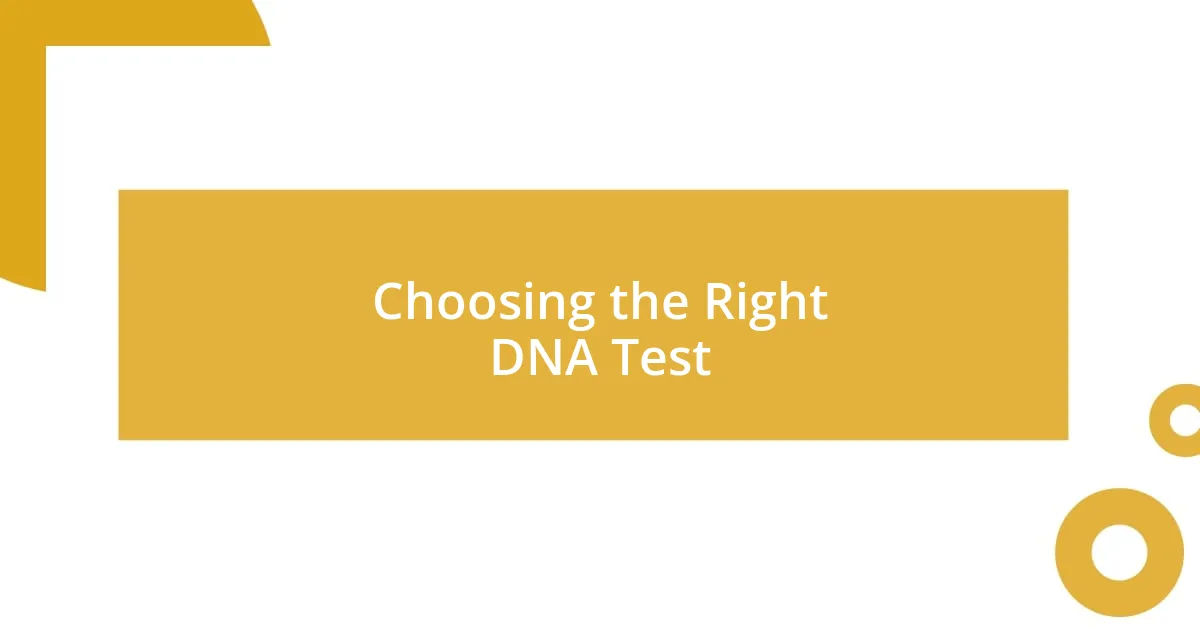
Choosing the Right DNA Test
Choosing the right DNA test can feel overwhelming, considering the variety of options available. I remember standing in front of my computer, sorting through different companies and their promises, feeling a mix of excitement and uncertainty. It’s essential to think about what you genuinely want to achieve: Are you looking to connect with relatives, gain insight into your ancestry, or explore health-related information? Each test serves a unique purpose, and understanding these can significantly shape your experience.
When I finally focused my search, I kept a few key factors in mind:
- Type of Test: Decide between autosomal, Y-DNA, or mitochondrial DNA tests based on your goals. Autosomal tests are great for uncovering family connections, while Y-DNA tests trace paternal lineage.
- Database Size: The larger the database, the higher the chance of connecting with distant relatives. I found a vast database helped me discover connections I didn’t anticipate.
- Privacy Policies: Research how each company handles your data. I felt reassured when I found a company that prioritized customer privacy.
- User-Friendly Experience: Look for a service that simplifies the process. I appreciated receiving a detailed report that was easy to interpret.
- Cost Considerations: Compare the costs and any additional features or reports. Some services include extensive ethnic breakdowns that may be worth the extra investment.
By knowing what really matters to you, you can navigate this intricate field with more confidence. It’s a journey of self-discovery, and ensuring the right test is like picking the right key to unlock your family story. Each choice can lead you down a path filled with revelations.
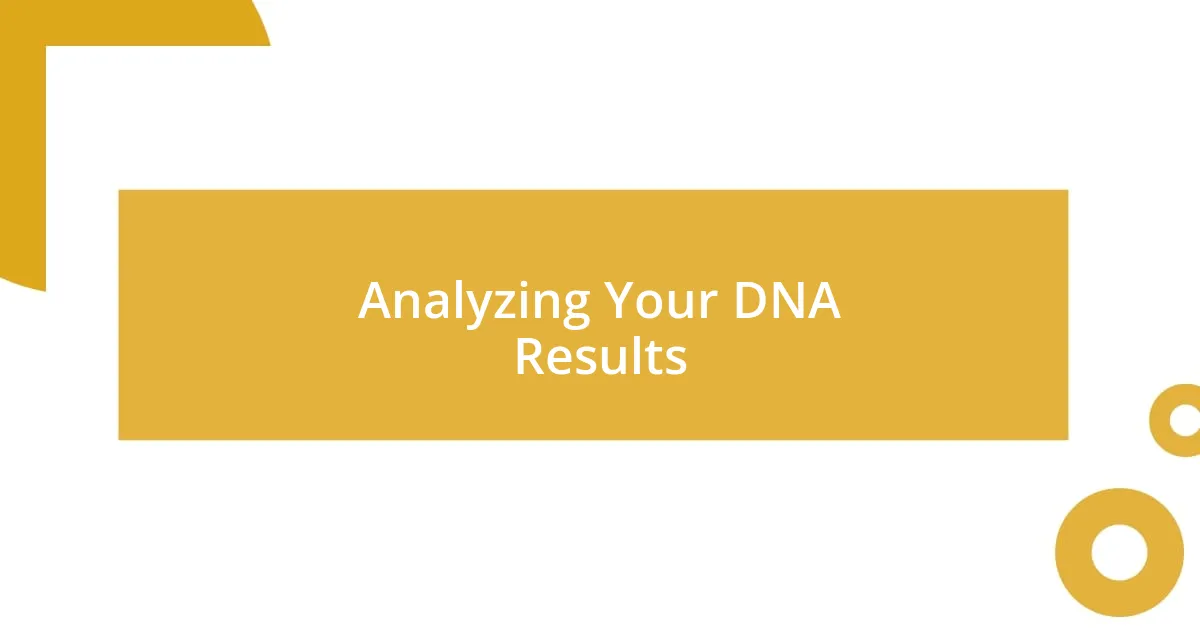
Analyzing Your DNA Results
Analyzing DNA results can be a thrilling yet overwhelming experience. I distinctly remember sitting down with my results, a mix of eagerness and apprehension coursing through me. The moment I saw the detailed breakdown of my ancestry, it felt like opening a book full of secrets waiting to be uncovered. Have you ever looked at a map and felt a strong pull towards a location? For me, that was the moment I connected to regions and cultures I had never before considered part of my heritage.
As I dove deeper, I found myself piecing together the stories behind each percentage listed on my results. Each region represented not just a statistical figure, but an invitation to explore the rich histories of my ancestors. It was exhilarating to discover that my great-great-grandparents might have walked the same cobblestone streets of a small village in Italy. This sense of connection transformed mere numbers into vivid narratives filled with potential family stories waiting to be shared.
Comparing my results with those of newfound relatives added another layer of complexity and excitement. I remember reaching out to a match who had a remarkably similar DNA profile, and we both gasped when we saw overlapping family names. This wasn’t just data; it was the shared heartbeat of our ancestry echoing through time. How often do we get the chance to uncover such profound bonds with others? Analyzing these results didn’t just help me learn about my family tree; it wove me into a community of stories, struggles, and triumphs that were now a meaningful part of my own identity.
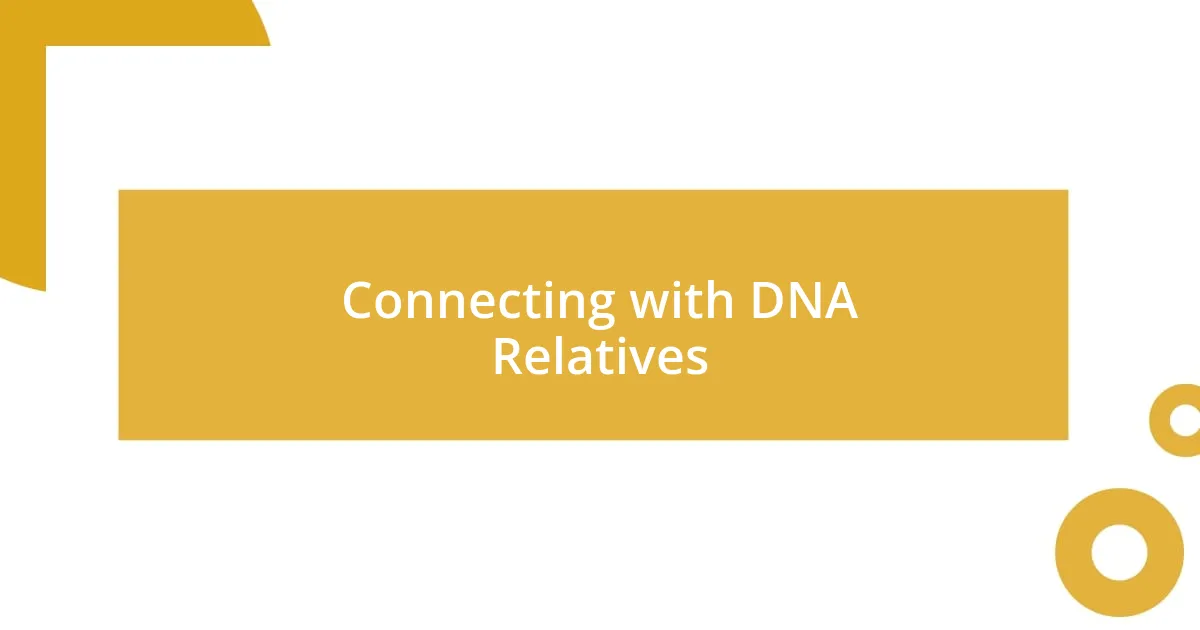
Connecting with DNA Relatives
Connecting with DNA relatives can be a transformative experience that breathes life into family history. When I first connected with a distant cousin, we realized we shared not only DNA but also a shared passion for genealogy. I could hardly contain my excitement as we swapped stories, each tale adding another piece to the puzzle of our shared ancestry. Have you ever met someone and felt an instant connection? That’s precisely how it felt; suddenly, family was no longer just names on a family tree but real people with lives, dreams, and stories similar to mine.
I distinctly remember a phone call with a newly connected relative, feeling both nervous and eager. As we talked, I felt like we were opening a door into our shared family narrative. My cousin shared photographs of our ancestors that had long been forgotten, and the more we discussed, the clearer our familial threads became. I often wondered how many stories were hidden in my relatives’ closets, waiting for someone to connect the dots. This emotional exchange not only deepened my understanding of my heritage but also reinforced the idea that we are all linked through our experiences.
Unexpectedly, I found that this connection extended beyond bloodlines. My newfound relatives introduced me to family traditions that had been carried through generations. I was curious: How did certain practices survive while others faded away? I learned to appreciate the rituals, recipes, and values that defined our collective identity. Engaging with these relatives opened up a treasure trove of family lore, one that grounded me in my history and made me feel a sense of belonging that I hadn’t anticipated. It’s incredible to think that a simple DNA test can lead to such meaningful connections—connecting with others through our shared humanity while enriching our understanding of who we are.
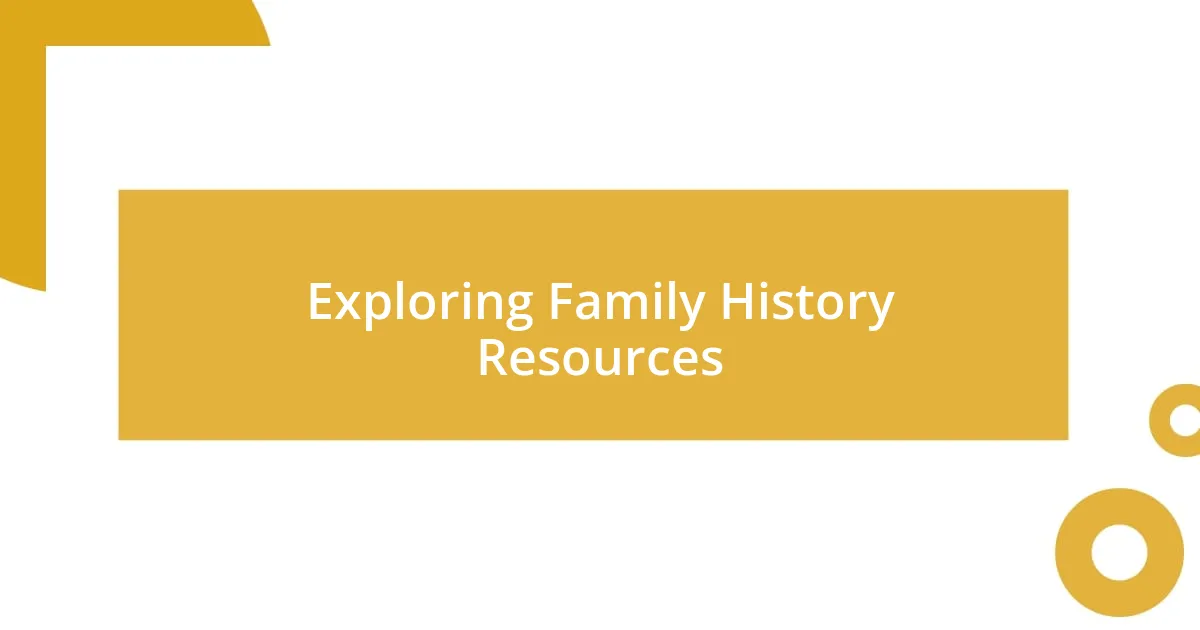
Exploring Family History Resources
Exploring family history resources can feel like wading through a vast ocean of information, but I’ve found it to be a rewarding endeavor. When I first ventured into online databases, I was surprised to discover archives that felt more like treasure maps than mere records. I vividly remember stumbling upon an old letter from my great-grandfather, his handwriting still legible, and it sparked an entire afternoon of daydreaming about his life. Have you ever uncovered a piece of history that brought you closer to your roots in ways you didn’t expect? For me, that letter connected the dots between generations, revealing stories that had long been silenced.
I also discovered local historical societies, which often house unique resources that can be elusive online. Attending a workshop hosted by one such society was eye-opening; the volunteers were not only knowledgeable but passionate about preserving our town’s history. I can still recall the rush of excitement when a volunteer shared a photo of my house from the 1920s—seeing it in its youthful splendor brought a rush of emotion I had never anticipated. Is there anything more touching than witnessing a glimpse of your ancestral past? It was as if my home was an anchor holding together the fabric of my family’s journey.
Moreover, don’t overlook the potential hidden within family stories. Talking to older relatives often reveals snippets of knowledge that aren’t found in any database. I remember one heartwarming afternoon spent with my grandmother, listening to her recount tales of her own upbringing that had shaped who we are today. Those conversations added layers to my understanding of my family history, enriching a straightforward genealogical chart with textured narratives and deeper meanings. Are we not the sum of our stories? Engaging with these resources is a crucial step in not only connecting with our ancestors but also understanding ourselves better.
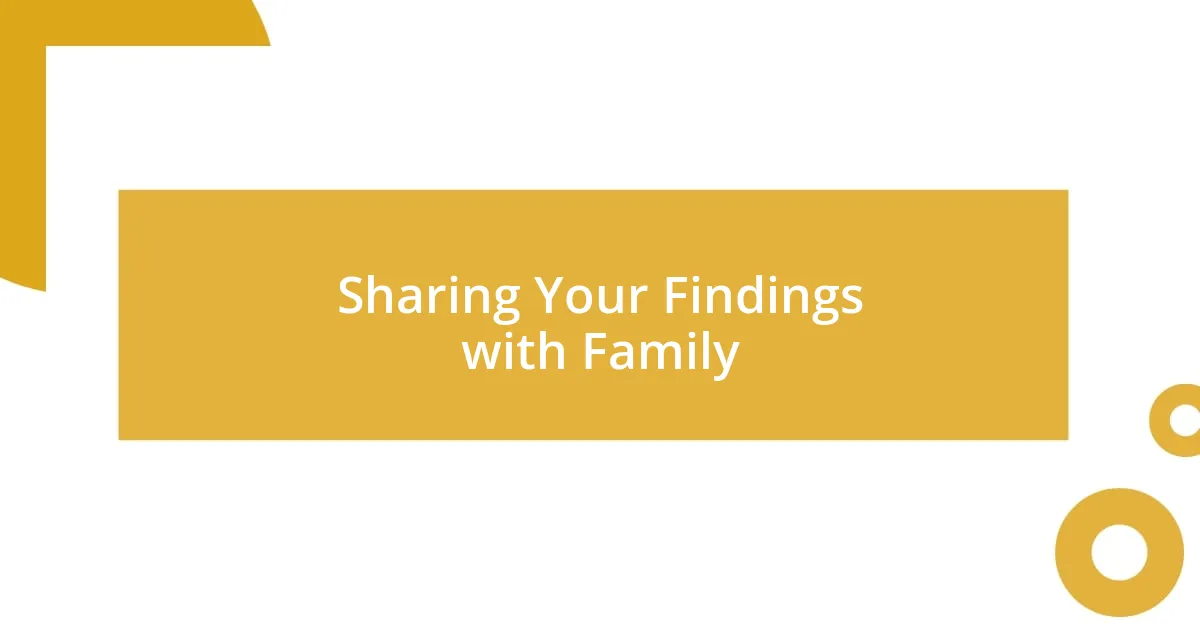
Sharing Your Findings with Family
Sharing discoveries from my DNA exploration with family has been both exhilarating and daunting. I remember the moment I gathered my immediate family around the dinner table, eager to unveil the results of my recent ancestry tests. As I spoke about our surprising ethnic breakdown and newfound relatives, I could see their curiosity pique. It made me wonder: How often do we consider the stories intertwined within our genes? That evening was filled with laughter and debates, where we not only shared facts but also reminisced about experiences that were oddly relatable, making the connection even stronger.
What surprised me most was the emotional weight these discussions held. After sharing a particularly interesting match, a distant cousin whose name I barely recognized, my younger sibling looked contemplative and said, “I never thought family could be this widespread.” His words clung to me; they emphasized how sharing our findings didn’t just reveal names but bridged the gap between past and future. We began to explore family dynamics, traditions, and values, digging deeper into who we are as a clan. I realized that our identities were being shaped not just by heritage but through a collaborative narrative we were all contributing to.
On another occasion, I organized a family gathering solely focused on what we had learned about our lineage. Each person brought their own fascinating stories, from little-known ancestors to even more unexpected family connections. I remember a cousin revealing that a famous figure in our family tree had once been a local hero, and suddenly, our quiet evening transformed into an animated storytelling session. “How is it possible we never knew about this before?” we all laughed, realizing that our shared history had been waiting for us to engage with it. Leaving that gathering, I felt a profound sense of belonging; together, we were crafting a rich tapestry of our family’s legacy, one thread of discovery at a time.
